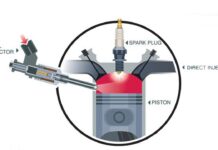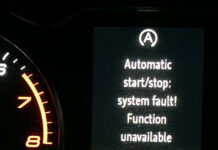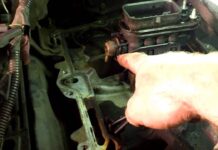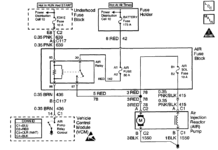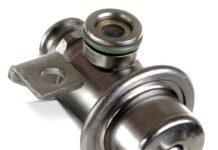What are the symptoms for an exhaust leak? What are the signs that indicate an exhaust leak? Is it safe to drive when there is an exhaust leak? Bad roads can damage the exhaust system ?….
The exhaust system is the part of an internal combustion engine that releases harmful gases. It is designed to move exhaust gases from engine to rear as efficiently as possible. This will prevent passengers and driver from inhaling harmful fumes.
What happens if there is an exhaust leak? This article will discuss the symptoms of exhaust leaks.
Six Signs that your exhaust leak is serious
You should feel one or more of these symptoms when your exhaust is leaking smoke.
1- Louder Engine Sound Than Normal
When your exhaust is leaking, the first sign you will notice is a louder than normal sound coming from your car. There are a few mufflers in the exhaust pipe that reduce engine noise. The exhaust sound that is produced by an exhaust leak will be heard before the mufflers. The intensity of engine noise will vary depending on how large the exhaust leak is.
2- Bottom Blowing Sound
A blowing sound may sometimes be heard when the engine starts if the exhaust leak is small. It can make different sounds depending on the size of your leak and sometimes cause high-pitched whistles.
An exhaust leak is likely if your car makes a “blowing” sound.
3-Burning of the Engine Malfunction Light Lamp
Modern cars are equipped with sensors in the exhaust to monitor the fuel mixture. One of these sensors also measures efficiency of the catalytic conversion. These sensors are known as O2 (or Oxygen Sensors).
Erroneous readings can be caused by an exhaust leak that occurs before any of the sensors. This information is sent to the Engine Control Unit (ECU). The ECU notifies the driver by turning on an engine fault lamp. The fault code can be read to get a better understanding of the problem.
4- Reduced Engine Performance
The illumination of the engine malfunction lamps is responsible for the decrease in engine performance. If the O2 sensors are sending incorrect values to ECU, the ECU won’t be able calculate the air/fuel mixture correctly. This causes idling irregularities as well sudden or slow accelerations, misfires, and other problems.
If the engine makes a louder than normal noise and the engine is performing less well, you should look into the exhaust.
5- Unusual Smells
You can also smell exhaust fumes from the engine while it is running. This is another indicator that there is a leak in the exhaust. This is preventable, as we said at the beginning. If you notice strange odors, it is likely that something is wrong with your exhaust.
Exhaust fumes can cause severe health problems and even death if left untreated. You should immediately have exhaust fumes removed from your home.
6- Failed Emissions Test
Emissions testing must be done regularly in some countries and states. Any leakage in the exhaust system will impact the emissions test. Due to the ECU’s 02 sensors, the air/fuel mixture in the engine will be affected. This will result in a lean mixture and the inability to pass the test.
Is it safe to drive with an exhaust leak?
Exhaust leaks are dangerous to the environment and you should not be allowed to walk around with them. Your car may also be burnt. Exhaust fumes can cause serious health problems, as we have already mentioned. Exhaust fumes can get very hot and ignite fuel. Unlucky people who have an exhaust leak in the wrong place could set your car on fire.
If you suspect that there may be a leak, but aren’t sure, have your exhaust system checked out by a professional. Most often, these checks are free or very affordable.
Are Bad Roads a Threat to the Exhaust System
The exhaust system in cars is often overlooked. However, it is an important system that should be looked at on a regular basis. It is durable but can be damaged by prolonged salt exposure and moisture. Bad roads are another threat to your exhaust.
There are many ways that bad roads can cause damage to the exhaust system.
Pits: It’s very noticeable when you fall into a pit. The entire vehicle is affected by the jolt. If the pit is large enough, the undercarriage could rub against asphalt. This indicates that the exhaust is coming into contact with road surface and can cause damage.
Throwing stones You are probably familiar with the practice of throwing stones from the rear tires of vehicles in front of you, but it is the same with your car. Stones from our cars’ front tires can cause damage to the exhaust pipes and catalytic converter. The catalytic converter’s ceramic components can be easily shattered by a single impact, even though they may sustain minor damage from light impacts.
You can be sure that your car will cause more damage if it is in a ditch. All parts of your car, including the steering and suspension, as well as the exhaust pipes and catalytic converters and mufflers can be damaged.


